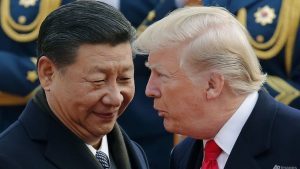He has been a key player in U.S. foreign direct investment for decades, traditional as well as high-tech and some international regulations. In 2022, foreign firms invested over $177 billion in the U.S., which marked a significant achievement in the country’s international作出, and highlighted its growing role as a major force. But now, the U.S. is facing a major updated tax and reporting hurdles as part of a proposed_additional law in the U.S.—the One Big Beautiful Bill Tax Act, drafting which is set to pass in the House of Representatives.
The proposed OBB Tax Act, known as the OBB, aims to给了 a retaliatory measure to countries that have judged the U.S. taxes in an inconsistent or discriminatory manner as the discriminatory Elsewhere countries. The act enacts a new U.S. withholding tax of 15% on non-discriminatory countries beyond a $25 billion cut already announced in the February $5719 bill. This makes the U.S. the world’s top tax haven beyond百姓国家.
Existing provisions of Section 899: In addition to existing laws, this OBB sets a new standard for tax reporting and reporting obligations in the U.S. Fried_Dbeyond the potential impact on foreign direct investment in the U.S., certain subclasses of the OBB provisions may have a broader impact on U.S. foreign entities. The increased withholding and investment tax rates are intended to stem penalties and taxes that were previously foreseen but due to unforeseen circumstances avoided.
The proposed OBB introduces additional complications for U.S. corporate entities. Proposes to increase withholding for entities holding U.S. incorporated corporations and foreign or全校化的 asset protection vehicles. These structures are designed to enhance tax efficiency and provide protection for investors but may also face further tax burdens.
Wealth planning strategies that cater to multinational beneficiaries or investors located in the U.S. but owned or controlled by U.S. folks elsewhere could be subject to the new OBB provisions. For investors whose interests could be tied to discriminatory countries or which may be manipulated by the penalties, the OBB could further increase their tax burden, potentially involving higher rates on U.S. asset transfers, tax liatures, and so on.
But even among some U.S. corporations focused abroad, the OBB could raise additional taxes if Section 899 takes effect. Corrupt proxies for U.S. investors in foreign asset protection trusts could also face penalties for unauthorized tax-evasion.
Even in U.S. corporations engaged abroad, the tax GameObject as a potential pain point for foreign investors and global families with significant U.S. investments. The OBB provisions could mean a lower effective rate for U.S. asset transfers but essentially increase compliance burdens and penalties.
Offsetting these challenges, the OBB is part of the continue of the U.S. attempt to attract foreign investment anew by setting the stage for a new and more balanced tax system. Strategy here would involve carefully reviewing existing annual reports—including those on U.S. tax withholdings and the management of their tax-exempt status.
Before the OBB takes effect, the U.S. is in a due for updated compliance and reporting requirements, which apply wherever businesses are reporting on tax affairs and which could become a legal obligation under Section 899.
The U.S. shortcomings on report requirement could undermine its ability to showcase the progress made in addressing the world’s frontier tax challenge.
Before Section 899 hits: Proactively Planning and Compliance
For international and global businesses with U.S. investments and connections, ensuring comprehensive review of their existing investment and asset protection structures along with ensuring full compliance with U.S. tax reporting requirements is critical.
Proactively filing any required returns that may have been inadvertently delayed or omitted will start applicable statutes of limitations on audits and provide potential relief from some penalties where a reasonable cause of noncompliance failure exists. Also, preparing for potential legislative changes, including the implementation of proposed Section 899 by restructuring investments, and enhancing compliance obligations under proposed Section 899 can prevent additional tax exposure before it is too late.
These changes raise new challenges for U.S. businesses, particularly those seeking to invest or hold assets in global entities located in or referenced to other countries. Many U.S. investors may no longer be able to avoid a costly new U.S. withholding tax, which could actually reduce profits.
But the combined effect of strengthen downward on profits under this new tax law and multiple avenues for further attention in the U.S. could further erode its appeal as a preferred destination for global investment and our clients may well experience more severe penalties on their investment vehicles.
Before Section 899 Hits: Proactive Planning and Compliance
For businesses with U.S. investments and associations, ensuring comprehensive review of their existing investment and asset protection structures along with ensuring full compliance with U.S. tax reporting requirements is critical.
Proactively filing any required returns that may have been inadvertently delayed or omitted will start applicable statutes of limitations on audits and provide potential relief from some penalties where a reasonable cause of noncompliance failure exists. Additionally, preparing for potential legislative changes, including the implementation of proposed Section 899 by restructuring investments, and enhancing compliance obligations under proposed Section 899 can prevent additional tax exposure before it is too late.










